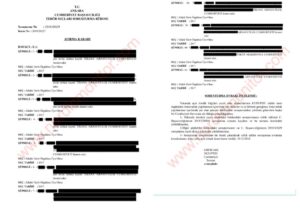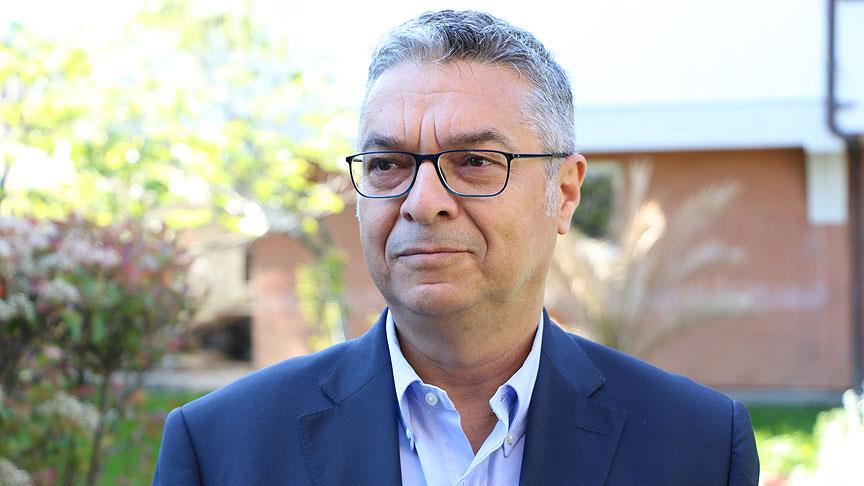The Turkish Embassy in Albania engaged in a campaign of intelligence gathering and profiling of critics of President Recep Tayyip Erdoğan, documents obtained by Nordic Monitor have revealed.
Judicial documents incorporated into a criminal case indicate that the Turkish Embassy in Tirana gathered information on persons believed to be affiliated with the Gülen movement, a group critical of President Erdoğan, and that Turkish teachers, representatives of local associations, businessmen, journalists and their family members living in the country had been profiled by Turkish diplomats.
The information reported to the foreign ministry in Ankara was later used in a criminal indictment for a charge of terrorism by notorious Turkish prosecutor Adem Akıncı.
According to a decision dated December 19, 2018, the Ankara Chief Public Prosecutor’s Office launched a separate investigation (file no. 2018/43629) into 61 innocent people who were listed in espionage files dispatched by Turkish diplomats in Tirana without any concrete evidence of wrongdoing. They were charged with “membership in a terrorist group” by Akıncı.
Prosecutor Akıncı, who led the investigation into the assassination of Russian Ambassador Andrei Karlov in December 2016, was accused of suppressing the evidence that the killer had links to various jihadist groups including al-Qaeda and was radicalized by several pro-government imams, including two who worked for the government religious authority, the Diyanet. Nordic Monitor previously reported that several suspects told the court that Akıncı had forced them to testify as if the assassination were directed by the Gülen movement. They were later jailed after declining the prosecutor’s request.
Profiling files might have been conveyed to the foreign ministry by Hidayet Bayraktar, the Turkish ambassador in Tirana between 2013 and 2017, and Erdoğan’s current envoy, Murat Ahmet Yörük.

Then-Ambassador Bayraktar described Gülen followers as malignant cells that needed to be destroyed and said he would track them until the last Gülenist was wiped out in Albania in an interview with the Turkish state-run Anadolu news agency on May 14, 2017. The agency chose not to publish the ambassador’s remarks that likened Gülenists to malignant cells in the English version of the interview.
As previously disclosed by Nordic Monitor, the foreign ministry sent lists of profiled Turkish nationals in two CDs to the Ankara Chief Public Prosecutor’s Office, the national police and Turkey’s intelligence agency MIT on February 19, 2018 via an official document for further administrative or legal action, the punishment of their relatives back in Turkey and the seizure of their assets.
The public prosecutor who received the foreign ministry document on February 23, 2018 forwarded the classified CDs including information on 4,386 Erdoğan critics to the organized crimes unit of the Ankara Police Department for further action. The police conveyed the results of its investigations to the public prosecutor.
According to judicial documents released by the Ankara 4th High Criminal Court on January 16, 2019, the foreign ministry compiled a long list of foreign entities that were owned and/or operated by people who were seen as close to the movement.
Turkish diplomatic missions continue systematic spying on Turkish government critics on foreign soil as confirmed by Foreign Minister Mevlüt Çavuşoğlu in February, 2020. Çavuşoğlu said Turkish diplomats assigned to embassies and consulates have officially been instructed by the government to conduct such activities abroad. “If you look at the definition of a diplomat, it is clear. … Intelligence gathering is the duty of diplomats,” Çavuşoğlu told Turkish journalists on February 16, 2020 following the Munich Security Conference, adding, “Intelligence gathering and information collection are a fact.”



